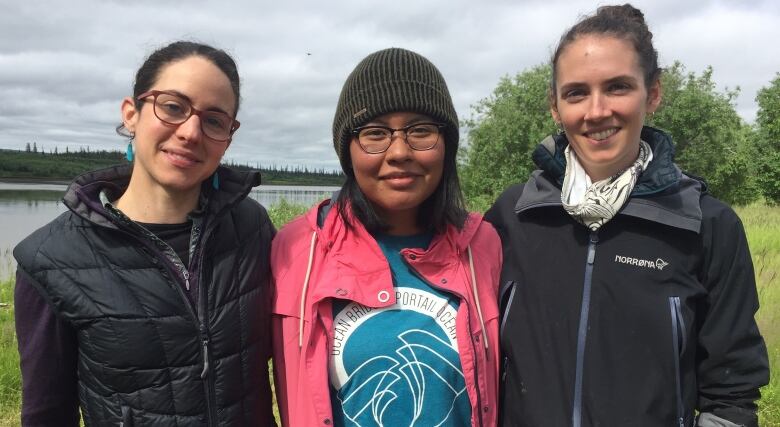Fort McPherson couple forgoes retirement, participates in whitefish research
Ernest and Alice Vittrekwa are part of a whitefish study along the Peel river

Alice and Ernest Vittrekwa say they could be enjoying happily retired life during the summer in Fort McPherson, N.W.T., but instead they are participating infish research.
Two times a week over the course of 10 weeks, the elders work together at their fish camp along the Peel River to process whitefish to learn more about them.
It all started last year, when their fish camp joined others near Fort McPherson and Tsiigehtchic to take part in a whitefish study.
"At first I told Ernest 'What did [we] get ourselves into?' because wedidn't know," said Alice.
"This fish study made me realize how important it is to study the fish because, like I said, testing fish didn't mean anything to me."
Vittrekwa said she's been coming to her fish camp since she was a child, and the research reminds her of how she grew up.
I've learned that I'm never too old to learn.- Alice Vittrekwa
The primary grant for the project came through the territory's Department of Environment and Natural Resources, but this year, another fish camp was added in Aklavik thanks to funding provided by University of Alberta's research group Tracking Change.
The study is co-ordinated by researchers Emma Hodgson and Rachel Hovel, but the Vittrekwas do most of the work by measuring and weighing the fish they catch. They also takepieces of fish scales and cut bones out of the head.
They then send that information south, where it's processed through labs.

The goal of the research is to find out more about whitefish, like where they move and how old they are when they are caught.
"One of our traditional foods is fish ... I don't know how long a fish lives and that's something I'd like to know," said Alice
"I'm educating myself I've learned that I'm never too old to learn."
Local youth help out
The Vittrekwas have two local youth helping themprocessthe fish.
This is the second year that 20-year-old Rayna Vittrekwa has been helping out.
"It's so different from what I usually do," she said.
"It's like looking for bones in its head that I didn't know existed, and learning about scales and bones [and] how it helps with science. It's just amazing for me to be able to be here and learn that."

Rayna said she is still trying to figure out what she wants to do for a career, but this experience has made her realize that she likes working in the environmental field.
This is what researchers Hovel and Hodgson want to hear.
"The community owns this project and we are here to facilitate and help as we can but it's so powerful to see folks ... get to have more of a context for these fish they've been working with their whole life," said Hovel.
"Handing it over and having folks like Rayna take it on is our ultimate goal."
Learning valuable information, says researcher
Hovel said after just one year in, they've learned some valuable information.
I enjoy it knowing that we are protecting our water ... and that we are protecting our fish now.- Ernest Vittrekwa
"The fish that are caught here at this camp actually travel in places in the Peel River but they also go to the Arctic Red River [and]they also spend time in the Mackenzie River," she said.
"So they don't have this straight forward migration.They are actually using a big part of the landscape."
Even after 41 years of marriage, the Vittrekwas are both continuing to work and learn together through a shared love of fish, and will continue to do it as long as they are asked.
"I enjoy it knowing that we are protecting our water in the Peel watershed, and that we are protecting our fish now," said Ernest.
- MORE NORTH NEWS|Florida rocket launch will mean faster internet for Nunavut












_(720p).jpg)


 OFFICIAL HD MUSIC VIDEO.jpg)
.jpg)



























































































